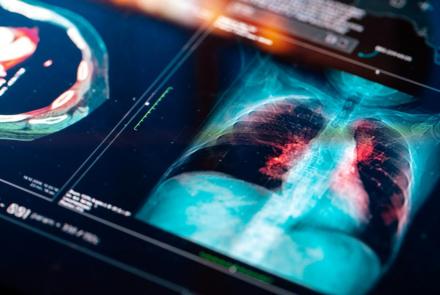Women with genetic mutations that put them at increased risk for breast cancer should have more frequent breast cancer screening, to increase the chance they can be treated successfully, says Nelly Oundjian, MD, Director of the Cancer Genetics Program at Montefiore Nyack Hospital and Highland Medical, P.C.
“We offer women with mutations in BRCA and other cancer susceptibility genes enhanced cancer screening to prevent cancer or to find the disease at an early stage,” Dr. Oundjian said.
The majority of cancers are not due to an inherited gene mutation. Only 5% to 10% of people diagnosed with breast cancer have inherited an increased risk of developing the disease. In these cases, breast cancer runs in the family and often occurs earlier than the non-inherited form of the same cancer, she explained.
Inherited mutations, or changes, in genes called BRCA1 and BRCA2 increase the risk of female breast, ovarian, and pancreatic cancers. The breast cancer may develop at an early age and in both breasts. According to the National Institutes of Health, 12% of women in the general population will develop breast cancer sometime during their lives. In contrast, up to 87% of women who inherit a harmful BRCA1 or BRCA2 mutation will develop breast cancer by the age of 80. The lifetime risk of ovarian cancer in BRCA1 and BRCA2 mutation carriers is up to 60%. They might also be at increased risk of pancreatic cancer.
Men with BRCA mutations have also an increased risk of getting breast, pancreatic and prostate cancers.
Dr. Oundjian strongly urges women with inherited mutations in BRCA and other cancer susceptibility genes to have frequent breast cancer screening. There are many types of screening including mammograms, MRI exams, ultrasound, breast exams performed by a physician, and monthly breast self-exams.
Women with BRCA mutations may choose to have surgery to reduce their cancer risk. For example, the breasts may be removed to prevent breast cancer, and the ovaries and fallopian tubes may be removed to prevent ovarian and fallopian tube cancer.
Individuals with genetic mutations can pass those mutations along to their children.
Who should seek cancer genetic counseling and testing?
- Women with a personal history of breast cancer diagnosed before age 50, cancer in both breasts or who have both breast and ovarian cancer
- Women with a family history of two or more close relatives with breast, ovarian, or pancreatic cancers
- Women of Ashkenazi Jewish descent with breast or ovarian cancer at any age, because they have a higher chance of carrying a mutation in the BRCA1 and BRCA2 genes
Genetic counseling and testing
The clinical cancer genetics program at Montefiore Nyack Hospital offers comprehensive cancer risk assessment, cancer genetic counseling and predictive genetic testing to those who have a personal and or family history of cancer, including breast and ovarian cancer. If a genetic change is found, other family members will be tested for that same mutation.
For more information about Montefiore Nyack cancer Genetics program and to schedule a consultation with the genetic counselor, Myriam Kawaja, please call 845-348-8551. We are located at The Breast Center, 160 North Midland Avenue, Nyack, NY.






